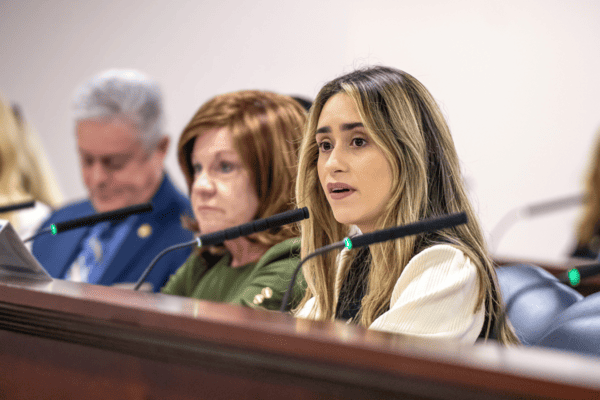Rep. Gus Bilirakis collaborates on legislation to enhance veteran claims and appeals process

WASHINGTON, D.C. – Rep. Gus Bilirakis, R-Fla., partnered with House Committee on Veterans’ Affairs Chairman Mike Bost, R-Ill., to co-sponsor legislation that aims to offer veterans seeking claims more flexibility and control over the processing of their appeals.
“In recent years, I’ve seen a significant rise in constituent complaints related to the bureaucratic red tape Veterans have faced when filing claims and appeals,” Bilirakis said. “Veterans deserve to have evidence of their claims evaluated by a qualified professional in a timely and efficient manner.”
The proposed “Veterans Appeals Options Expansion Act,” HR 7793, seeks to empower veterans by offering them increased flexibility in managing the processing of their appeals with the VA Board of Veterans’ Appeals.
The legislation aims to ensure that the VA considers the date of an incorrect claim form for the purpose of backdating any disability compensation grants. It seeks to grant veterans the ability to switch board dockets at any point before their appeal is allocated to a board decision-maker.
Additionally, the bill mandates prompt notification to veterans regarding any untimely evidence submissions and the associated consequences. It also prohibits veterans from being relegated to the end of the board’s queue after their claims are returned to the administration.
Furthermore, this legislation guarantees that the board judge who presides over a hearing renders the final decision on the veteran’s claim.
Bost said he was “proud” to initiate the Appeals Modernization Act in 2017, which he said “rightfully” gave veterans more choice and control over their appeal. However, he said, there is “more work to do to make sure veterans are well-served and receive timely, accurate disability compensation benefits decisions.”
“I’m proud to lead the Veterans Appeals Options Expansion Act alongside my friends, Chairwoman Stefanik and Rep. Bilirakis, to open up even more avenues for Veterans to get their earned disability compensation benefits,” Bost said. “Veterans and their families need a benefits system that works with them. This bill would build on our work to do just that.”
Under the existing law, if a veteran mistakenly files an initial claim for VA benefits using an incorrect form and later submits the correct one, the VA does not retroactively adjust payments to the date of the initial incorrect claim form upon approval of the corrected claim.
When a veteran’s claim for VA benefits is denied by the Veterans Benefits Administration, the veteran has the choice to appeal to the VA Board of Veterans’ Appeals, according to a document.
At this stage, the veteran can opt for one of three Board appeal “dockets”: the “direct review docket,” which doesn’t allow new evidence submissions; the “evidence submission docket,” permitting new evidence submissions within a specified timeframe; and the “hearing docket,” allowing evidence submissions within a set timeframe as well as a hearing before a board judge.
However, once a certain deadline passes, veterans are unable to switch to another board docket. Presently, veterans who opt for the board’s hearing docket experience an average wait time of approximately 2.5 years for a board hearing with no recourse to switch to a faster docket.
Moreover, the board informs veterans of any inadmissible evidence in the board’s claim decision well after the evidence has been submitted, and often after the deadline has elapsed for the veteran to switch to a board docket that would permit the submission of new evidence in light of this newfound knowledge of what was previously deemed inadmissible.
In specific cases, the board may send an appeal back to the Veterans Benefit Administration for correction of errors. If the administration persists in denying the claim after the remand, veterans have the choice to appeal again to the board.
However, when veterans file a subsequent appeal to the Board following a remand, it is treated as a completely new appeal. Consequently, veterans are placed at the back of the board’s queue and are not assured a decision by a board judge, even if a hearing was previously conducted on their claim.
“I’d like to thank Chairman Bost and his team for their responsiveness when I brought these concerns to their attention and for their many months of hard work in developing legislative solutions that will hopefully remove many of the barriers Veterans face when accessing the benefits they’ve earned and deserve,” Bilirakis said.



